
COLD, FLU & COUGH NEWS AND RESEARCH
Latest Cold, Flu & Cough News and Research
Novel vaccine candidate robustly protects non-human primates against SARS-CoV-2
The development of a safe and effective vaccine will likely be required to end the COVID-19 pandemic. A group of scientists, led by Beth Israel Deaconess Medical Center immunologist Dan H. Barouch, MD, PhD, now report that a leading candidate COVID-19 vaccine developed at BIDMC in collaboration with Johnson & Johnson raised neutralizing antibodies and robustly protected non-human primates against SARS-CoV-2, the virus that causes COVID-19.
UEA researchers examine flu vaccine uptake to learn lessons for COVID-19 immunization
Researchers at the University of East Anglia (UEA) are investigating uptake of the flu vaccine among care home staff in a bid to see if lessons can be learned to encourage people to have a COVID-19 immunisation.
Scientists develop human lung organoids to study SARS-CoV-2 infection
Now, a new study published on the preprint server bioRxiv in July 2020 reports the development of a human distal lung culture system that can be functionally tested. This will help not only to understand how this infection produces disease but also to test the proliferative capacity of the stem cells in this part of the body.
Study reports highly potent anti-SARS-CoV-2 compounds
A new study published on the preprint server bioRxiv in July 2020 reports that a series of potent enzyme inhibitors have been designed to suppress severe acute respiratory syndrome coronavirus 2 (SARS-CoV-2) replication by interfering with one of the primary viral proteases.
Researchers are developing comprehensive catalog of functional elements of human and mouse genomes
Scientists around the world have access to a rich trove of information through the Encyclopedia of DNA Elements (ENCODE)--annotated versions of the human and mouse genomes that are vital for interpreting their genetic codes.
Antimalarial drug shows in vitro activity against SARS-CoV-2 and flu viruses
Now, a new study published in the preprint server bioRxiv in July 2020 reports on the antiviral activity of two drugs found in an antimalarial drug currently in phase II trials in South Korea, called Pyramax.
Researchers analyze travel history of first COVID-19 cases reported in countries outside China
Web-based surveillance of the global spread of SARS-CoV-2 (the virus that causes COVID-19) during the first 11 weeks of the outbreak (Dec 31, 2019, to March 10, 2020), reveals that three-quarters (75/99) of affected countries outside mainland China reported their first COVID-19 case in people who had recently travelled to an affected country--with almost two-thirds of these first cases linked to travel to Italy (27%), China (22%), or Iran (11%), according to new research published in The Lancet Infectious Diseases journal.
COVID-19 pandemic is "one big wave" says WHO
The COVID-19 pandemic that has gripped the world has to date infected over 16.95 million individuals and taken more than 665,000 lives. Now the World Health Organisation (WHO) has warned that this pandemic could cause a Tsunami of cases, and there is no scope for complacency in regions where numbers have declined.
Relatives of SARS-CoV-2 may pose a health threat for years to come
Coronaviruses are zoonotic viruses that jump from animals to humans and cause infection. There are many types of common human coronaviruses, which usually cause mild to moderate upper-respiratory tract illnesses, like the common cold. Most people get infected with one or more of coronavirus types 229E, NL63, OC43, and HKU1 at some point in their lives.
Loss of smell in COVID-19 explained by scientists
Now, a team of researchers at Harvard Medical school says they have found the reason why some people who get COVID-19 experience loss of smell.
Iota-carrageenan from red seaweed inhibits SARS-CoV-2 in laboratory conditions
In a recent bioRxiv paper, a research group from the Marinomed Biotech biopharmaceutical company in Austria showed that a sulfated polysaccharide iota-carrageenan has the propensity to inhibit cell entry of the severe acute respiratory syndrome coronavirus 2 (SARS-CoV-2) by using an in vitro neutralization assay.
Study explores if prior exposure to common cold viruses may affect SARS-CoV-2 severity
A study led by Charité - Universitätsmedizin Berlin and the Max Planck Institute for Molecular Genetics (MPIMG) shows that some healthy individuals possess immune cells capable of recognizing the novel coronavirus, SARS-CoV-2.
Researchers identify potential anti-viral strategy for SARS-CoV-2 virus
In the case of an infection, the SARS-CoV-2 virus must overcome various defense mechanisms of the human body, including its non-specific or innate immune defense. During this process, infected body cells release messenger substances known as type 1 interferons. These attract natural killer cells, which kill the infected cells.
Where mask-wearing isn’t gospel: Colorado churches grapple with reopening
The lights dimmed. Guitars thrummed. And a nine-piece band kicked off what amounted to a rock concert inside an amphitheater of a church. "Shout for joy to the Lord," one musician called out, quoting Scripture.
WHO and NDWG launch framework for evaluation of new tests for TB infection
WHO and the Stop TB Partnership's New Diagnostics Working Group launched today a framework for the evaluation of new tests for tuberculosis infection.
Analysis: When is a coronavirus test not a coronavirus test?
Desperate to continue the tradition of a family beach week, I hatched a plan that would allow some mask- and sanitizer-enhanced semblance of normality.
Combination of certain drugs can do more harm than good, shows study
A team of researchers at the Norwegian University of Science and Technology (NTNU) investigating how a certain type of drugs can kill cells has discovered that these drugs can do more harm than good when used in combination with other cancer treatments.
Researchers launch randomized, placebo-controlled clinical trial of pulmozyme in COVID-19 patients
Researchers at Boston Children's Hospital and Brigham and Women's Hospital have launched a randomized, placebo-controlled clinical trial of dornase alfa (Pulmozyme) in patients with severe COVID-19 pneumonia and respiratory failure requiring mechanical ventilation.
Computed tomography can serve as effective tool for diagnosing COVID-19
The use of computed tomography in outpatient computed tomography centers (OCTC) is entirely consistent with the clinical data and global best practices. This is also an effective tool for diagnosing the coronavirus infection COVID-19
Exciting cost-effective SARS-CoV-2 vaccine candidate using Newcastle disease
Experts warn that the world may see repeated waves of the COVID-19 pandemic. However, scientists around the world are working hard to create a protective vaccine or antiviral, which could help to reduce the number of deaths and cases the next time around.

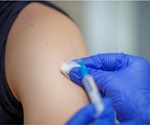
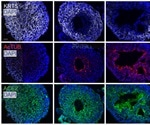
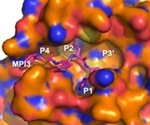

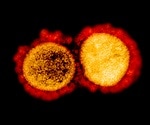
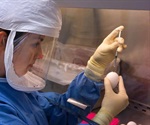
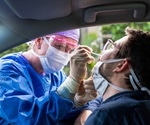
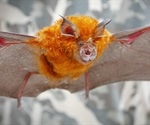
_adf592eabab24c8d9c55265f0a1d0c1d-150x125.jpg)
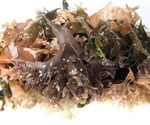
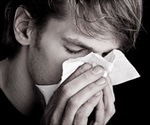
_cell_identifies_cancer_cell_-_Illustration_-_Alpha_Tauri_3D_Graphics_M1_5f7aab4d34ba4ee8b29fa2bb16c4fc58-150x125.jpg)
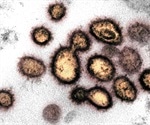
_Chronic_granulomatous_inflammation_-_Komsan_Loonprom_fea37e8c42be4ab7bdc8c06c21bcc289-150x125.jpg)

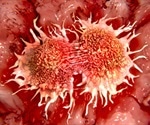
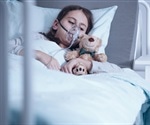
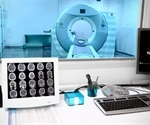
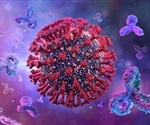
































No hay comentarios:
Publicar un comentario